 |
 |
 |
| |
Immediate ART in START Cuts Risk of Infection-Linked Cancer About 75%
|
| |
| |
Conference on Retroviruses and Opportunistic Infections (CROI), February 22-25, 2016, Boston
Mark Mascolini
People who started antiretroviral (ART) immediately in the START trial, at a CD4 count above 500, had about a 75% lower risk of infection-related cancer during follow-up [1]. Every 10-fold higher viral load more than doubled the risk of infection-related cancer. But the benefit of speedy ART did not seem to depend solely on HIV suppression.
HIV raises the risk of several non-AIDS cancers and has emerged as a major cause of morbidity and mortality in people with HIV, especially as they survive to older ages. The START trial found a lower risk of a serious AIDS event, a serious non-AIDS event, or death in antiretroviral-naive people who began ART with a CD4 count above 500 rather than waiting until the count fell to 350 [2]. In START people in the immediate treatment arm had a 64% lower risk of AIDS and non-AIDS cancers combined (hazard ratio [HR] 0.36, 95% confidence interval [CI] 0.19 to 0.66, P = 0.001).
START investigators further explored the impact of immediate ART on cancer risk by classifying cancers into any cancer, infection-related cancers, and infection-unrelated cancers. Infection-related cancers include those linked to HHV-8 (Kaposi sarcoma), Epstein-Barr virus (Hodgkin and non-Hodgkin lymphoma), and HPV (anal cancer and cervical cancer). The researchers used multivariable Cox models to pinpoint factors linked to risk of these cancers in the study population.
The START population was young, with a median age of 36 years [2]. Throughout follow-up, 6 infection-related cancers developed in the immediate ART group and 23 in the deferred group. The immediate ART group got diagnosed with 8 infection-unrelated cancers, compared with 16 in the delayed ART group. People in the immediate-ART arm had a 74% lower risk of infection-related cancer (HR 0.26, 95% CI 0.11 to 0.64, P = 0.003). The lower risk of infection-unrelated cancers in the immediate-ART group did not reach statistical significance (HR 0.49, 95% CI 0.21 to 1.15, P = 0.103).
In an analysis of the combined START arms, three factors independently raised the risk of any cancer: every 10 years of age, every 10-fold higher pre-ART viral load, and white versus black race. Every 10 years of age and every 10-fold higher pre-ART viral load also independently predicted infection-related cancers. Older age but not pre-ART viral load predicted infection-unrelated cancers.
The START team used six models to assess the impact of immediate versus deferred ART on risk of any cancer, infection-related cancer, and infection-unrelated cancer. Model A was a univariable analysis; model B adjusted for baseline age, gender, race, region, smoking, body mass index, hepatitis B or C, CD4 count, and baseline viral load; model C adjusted for latest CD4 count as a continuous variable; model D adjusted for latest viral load above or below 200 copies; model E adjusted for latest CD4 count and latest viral load above or below 200 copies; and model F adjusted for the variables in model B plus latest CD4 count and latest viral load.
For any cancer and for infection-related cancer, immediate ART was associated with a lower cancer risk in the first three models but not in models D, E, and F, which all adjusted for latest viral load. For infection-unrelated cancers, immediate ART was not associated with a lower cancer risk in any model.
The START investigators concluded that "the benefit of immediate ART doesn't appear to be solely attributable to HIV RNA suppression and may also be mediated by other mechanisms, such as a curb on oncogenic virus coinfection and reduction in inflammation."
References
1. Borges AH, Neuhaus J, Babiker A, et al. Immediate ART initiation reduces risk of infection-related cancer in HIV infection. Conference on Retroviruses and Opportunistic Infections (CROI), February 22-25, 2016, Boston. Abstract 160.
2. INSIGHT START Study Group, Lundgren JD, Babiker AG, Gordin F, et al. Initiation of antiretroviral therapy in early asymptomatic HIV infection. N Engl J Med. 2015;373:795-807. http://www.natap.org/2015/IAS/IAS_36.htm
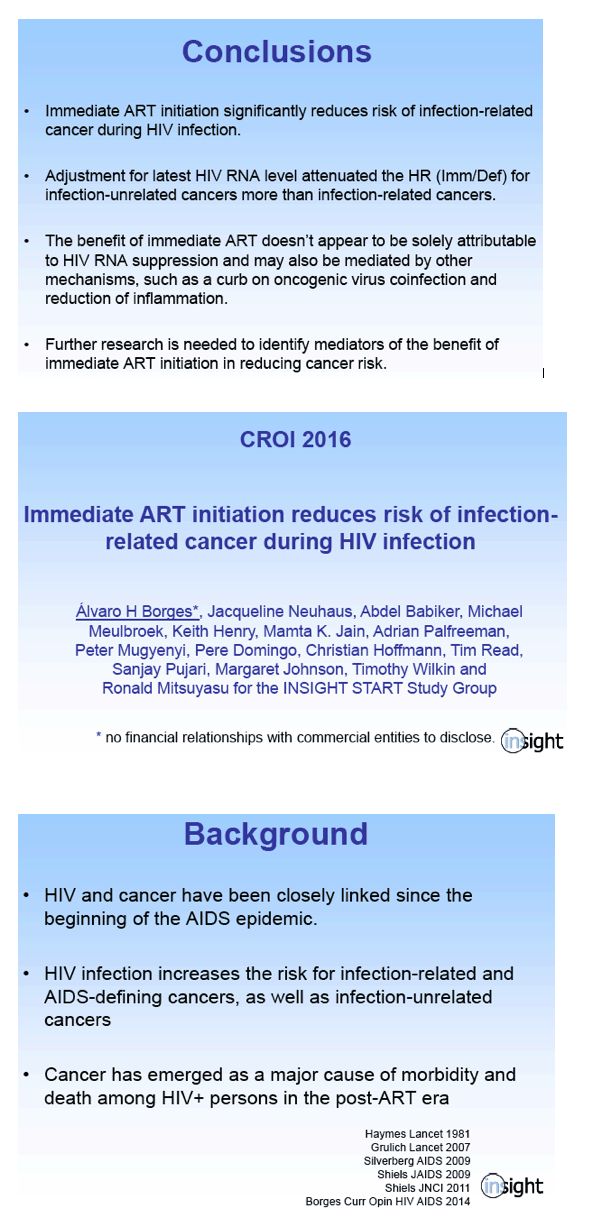
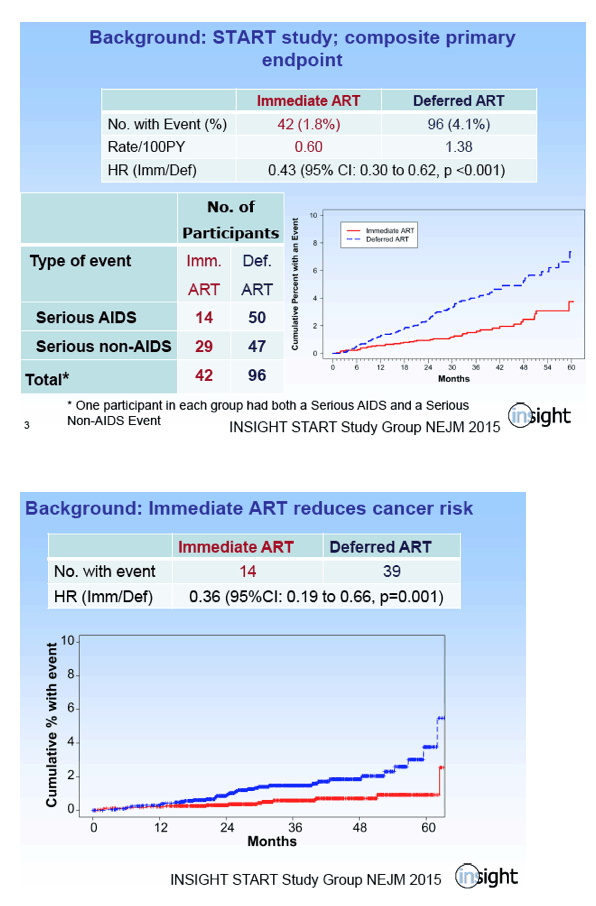
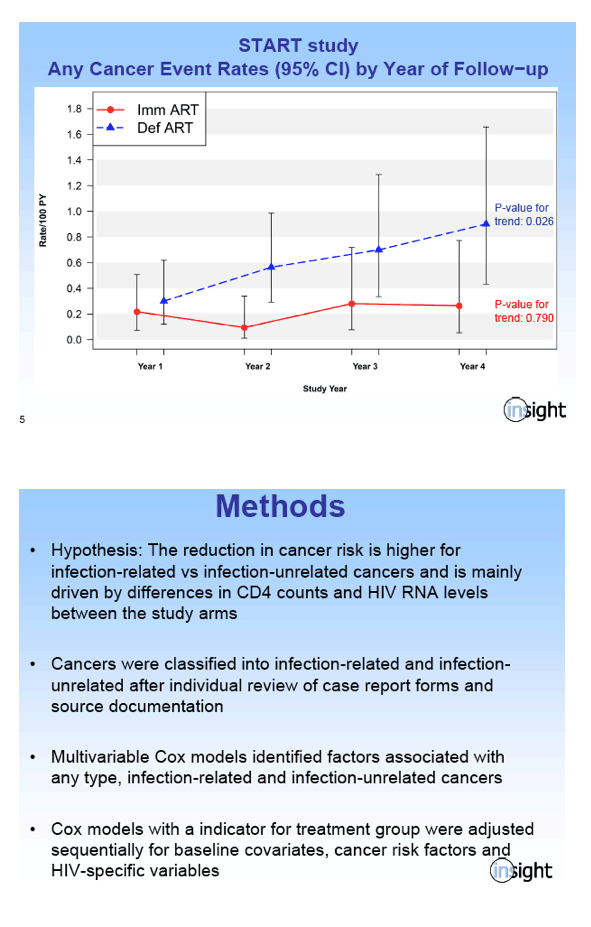
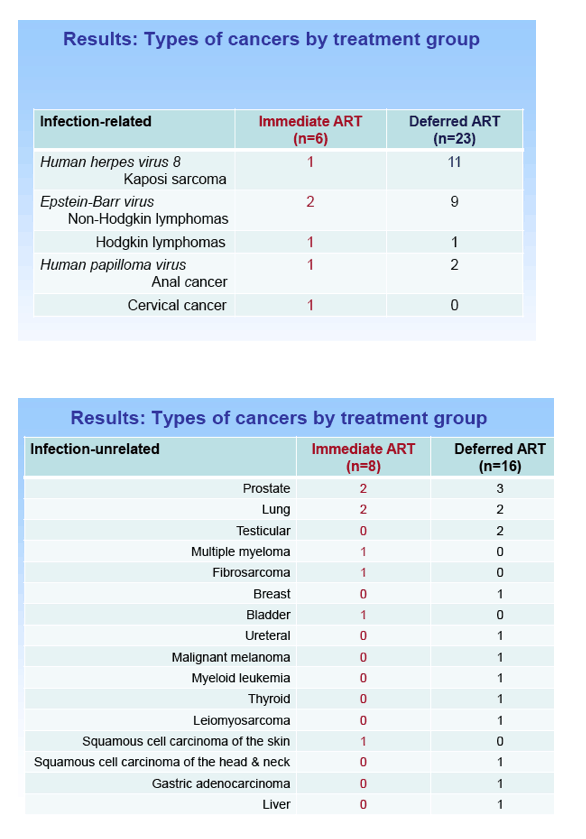
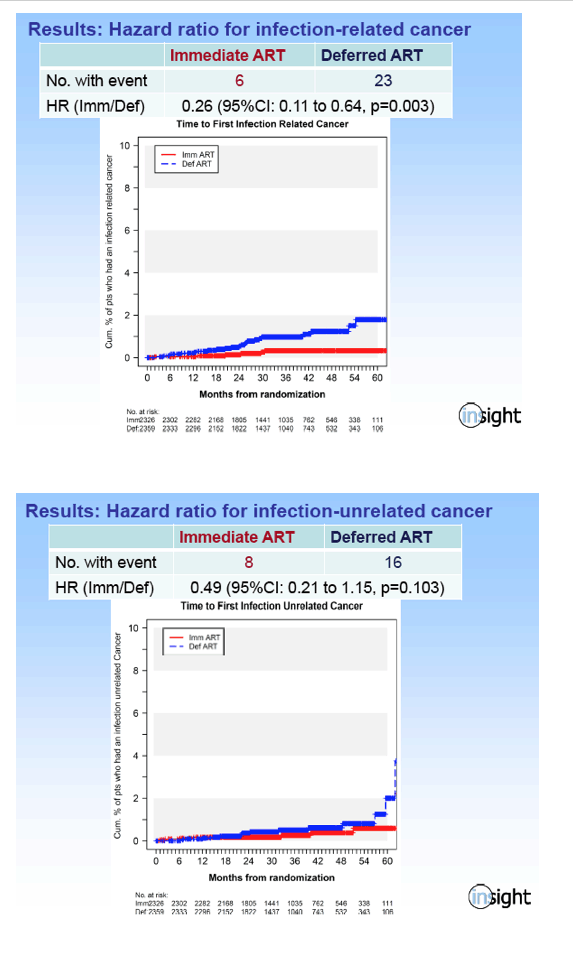
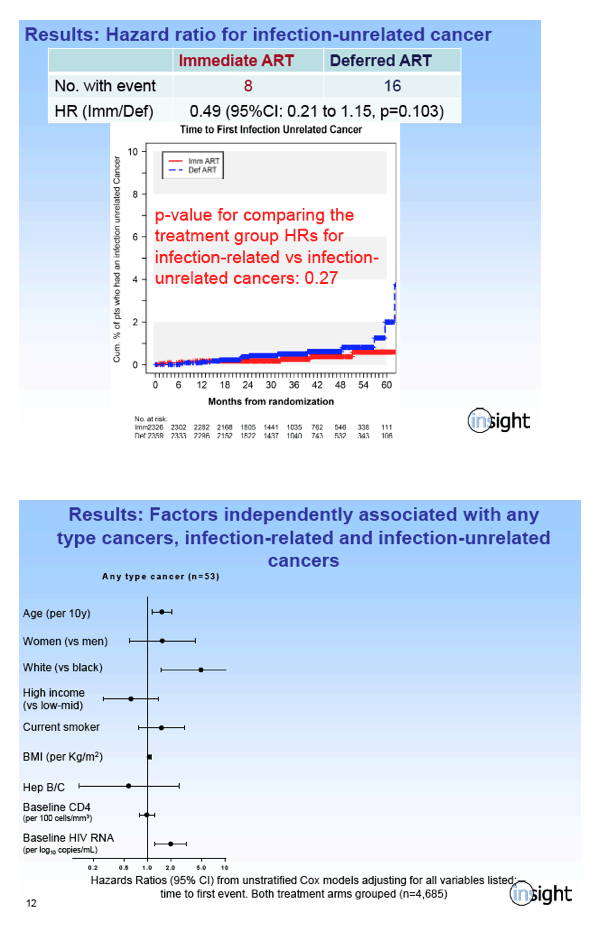
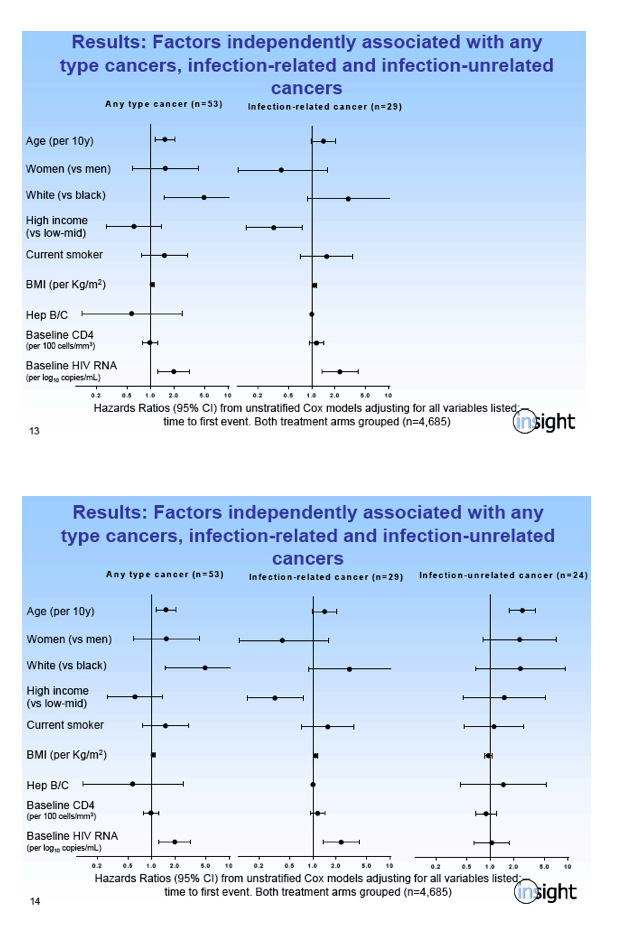
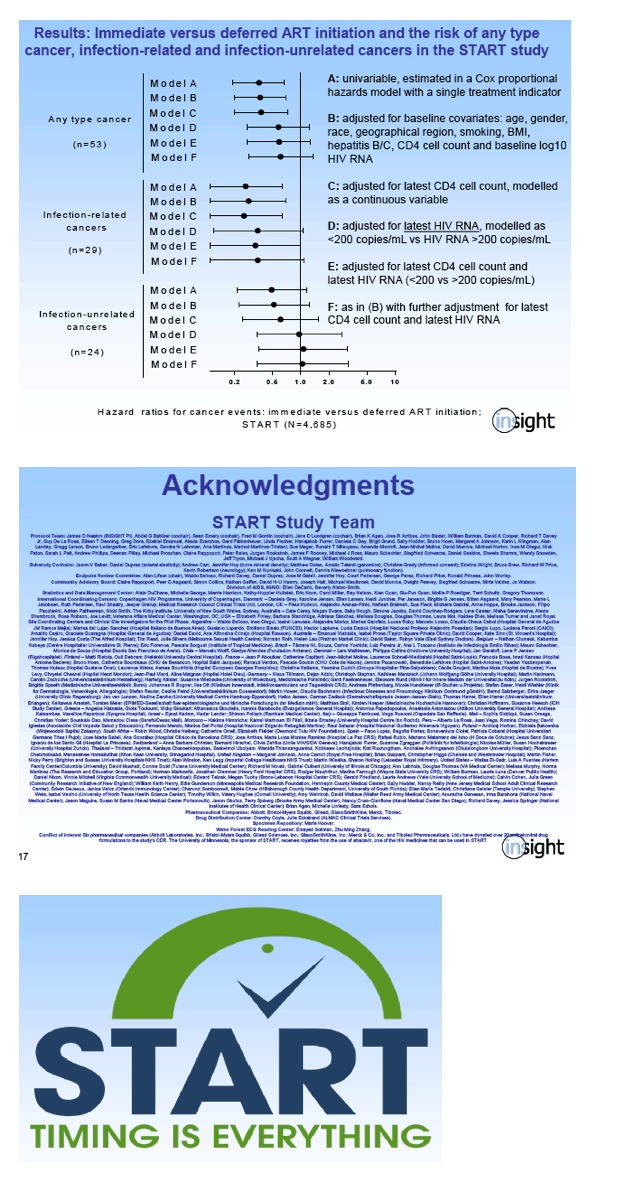
|
| |
|
 |
 |
|
|